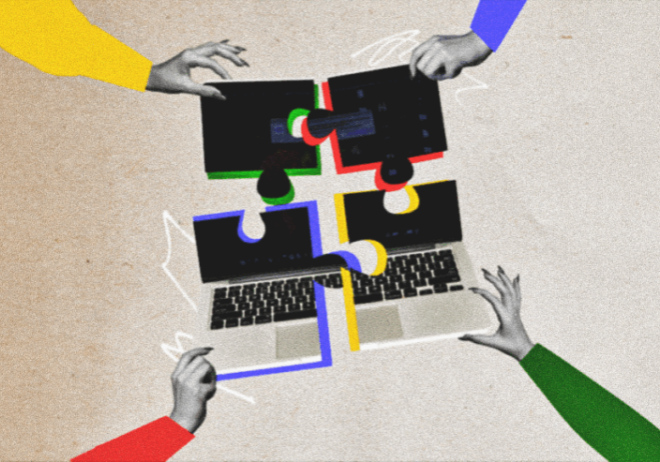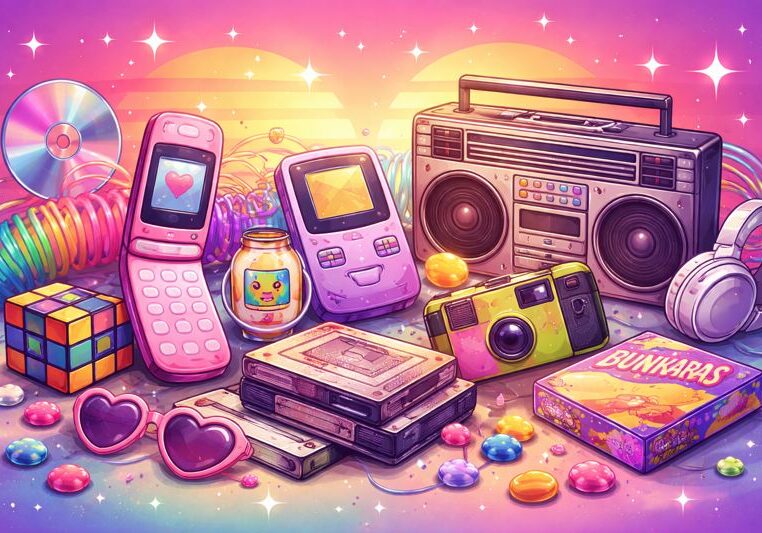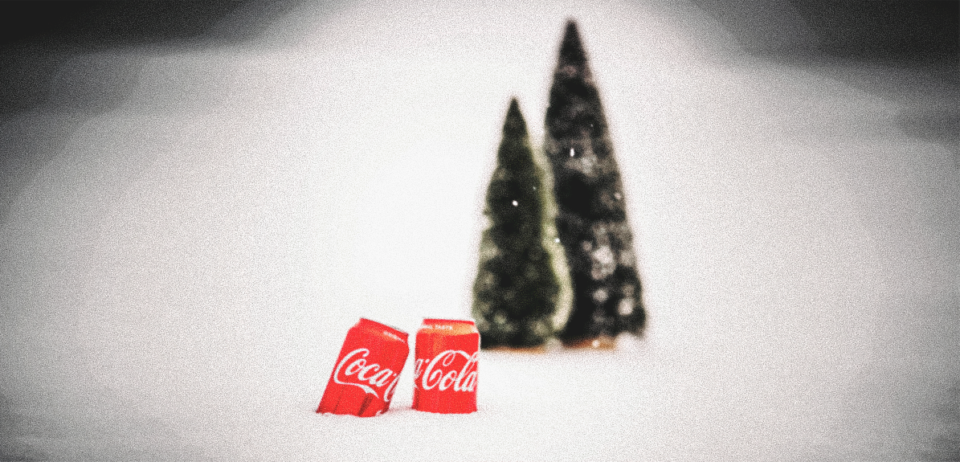
Holiday Coca-Cola AI Ad Faces Industry Backlash
The Coca-Cola AI ad campaign, “The Holiday Magic is Coming,” was meant to garner applause by mixing festive joy with AI-generated creativity. In part, it worked: some market reports claim pockets of positive reception for the ad. But a larger chunk of the internet audience, including everyone in our industry were left fuming, and social media platforms, particularly YouTube, were flooded with adverse reactions.
From furious hashtags like #BoycottCocaCola on Instagram to a mountain of dislikes and spicy comments, it seems Coca-Cola might have overestimated AI’s ‘real magic’ (pun intended).
Critics slammed the ad not just for its uninspired execution but for what they perceived as a lack of effort from Coca-Cola’s decision-makers. Why skip involving animators, creative minds, and actual feedback when crafting a holiday campaign meant to touch hearts and ignite nostalgia? Laziness, blind faith in AI, or trying to save a few million?
Let’s dive deeper into this AI ad debacle and Coca-Cola’s response—are people really feeling overwhelmed by AI, or was this just a festive faux pas?
Coca-Cola’s AI Holiday Ad couldn’t bring back the true magic of nostalgia with its self-owned generative AI
Coca-Cola aimed to revive the festive magic of its iconic 1995 “Holidays are Coming” campaign—complete with cherry-red trucks, snow-laden roads, and beloved Santa’s magic—this time with an AI-driven twist. Instead, the ad ended up being a masterclass in how not to blend nostalgia with modern technology.
While the ad showcased familiar elements like the Polar Bear family, a reindeer, and a loyal dog, the AI-generated visuals could have been more impactful. There were noticeable issues, including messy details like truck wheels gliding across the ground without spinning, distorted proportions, and shapes of Christmas lights and buildings.
Critics were quick to voice their dissatisfaction, with social media erupting in backlash. Animator Alex Hirsch, known for Gravity Falls and Rick and Morty, minced no words on X (formerly Twitter), expressing his frustration with the campaign.
Another disenchanted viewer, Dylan Pearce, took to TikTok, bluntly stating, “Coca-Cola just put out an ad and ruined Christmas.”
The New York Times reported mounting criticism, with many accusing Coca-Cola of leaning on AI at the expense of creativity and heart. This move felt tone-deaf for a brand synonymous with holiday warmth.
While Coca-Cola sought to innovate, the company overlooked the key ingredient of nostalgia: authenticity.
Subscribe to our bi-weekly newsletter
Get the latest trends, insights, and strategies delivered straight to your inbox.
Truth about Coca Cola’s AI Holiday ad is in plain sight
After sifting through hundreds of comments and compiling screenshots, it’s hard to believe that Coca-Cola’s AI Holiday ad has created any real magic in the market—let alone the “Real Magic” it promised.
Here are a few excerpts to highlight what everyone has been buzzing about.
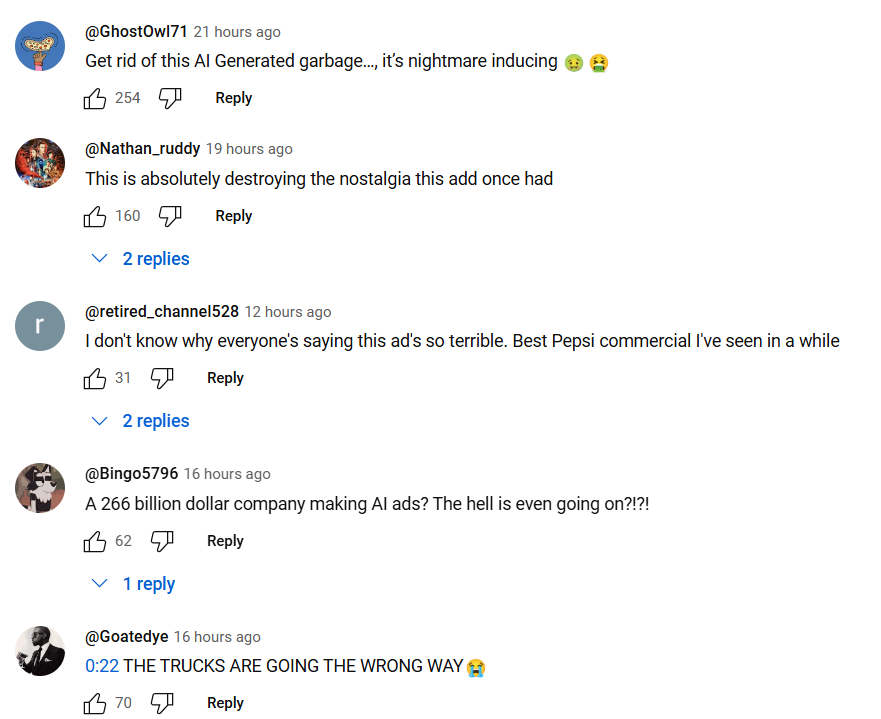
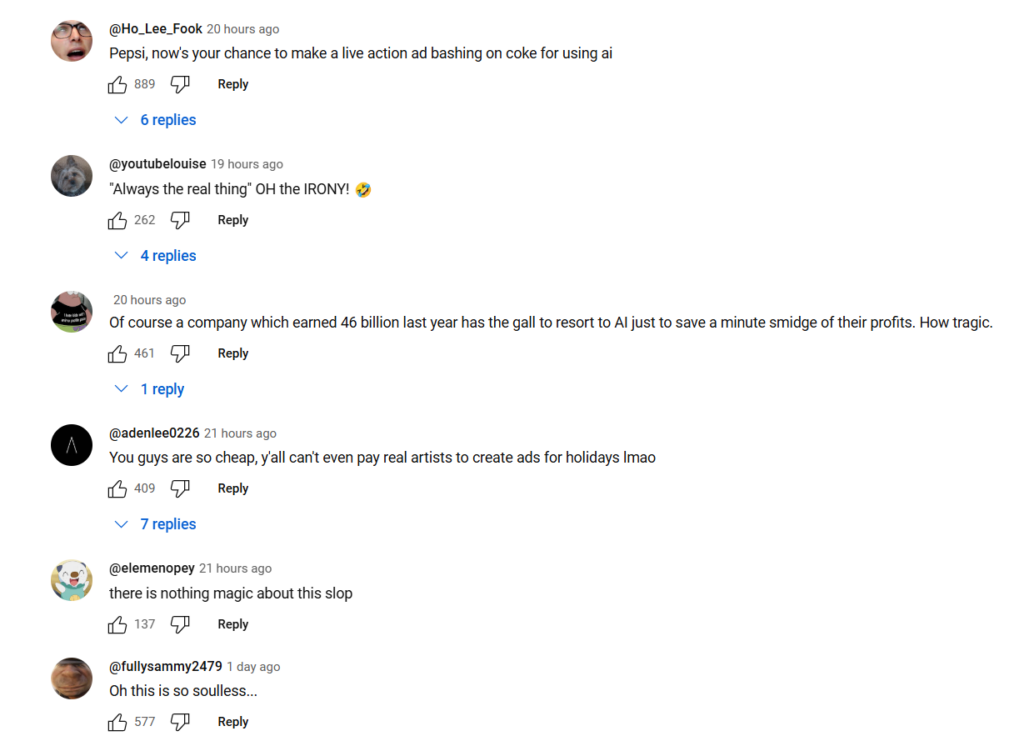
Interestingly, reports from agencies like System1Group, which uses the FaceTrace® emotional measurement tool, paint a different picture. According to their findings, the ad excelled across multiple parameters, with happiness (77 percent), neutrality (12 percent), and surprise (9 percent) being the dominant emotions.
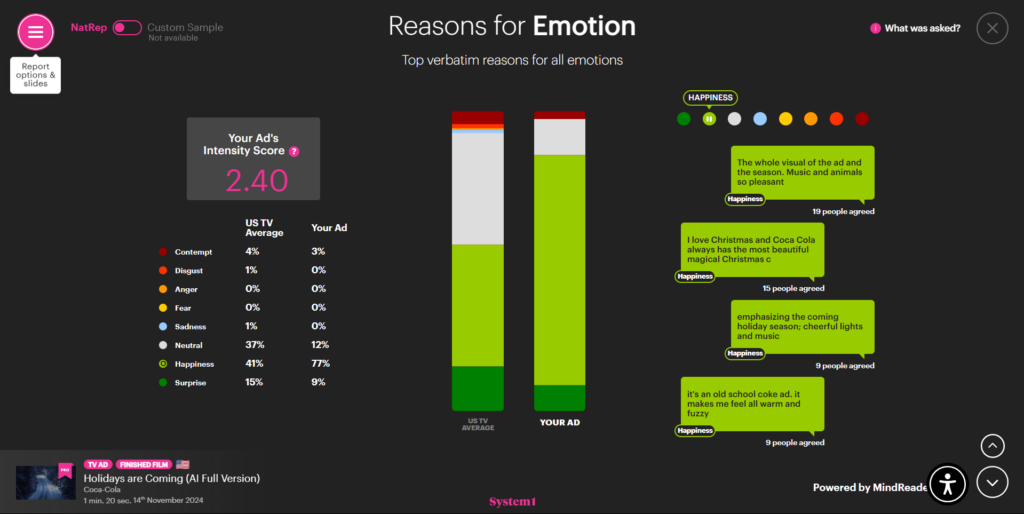
While we can’t dismiss the report outright, public sentiment is too loud to ignore. Even though YouTube no longer displays dislike counts, we tracked the numbers, which far outweigh the likes.
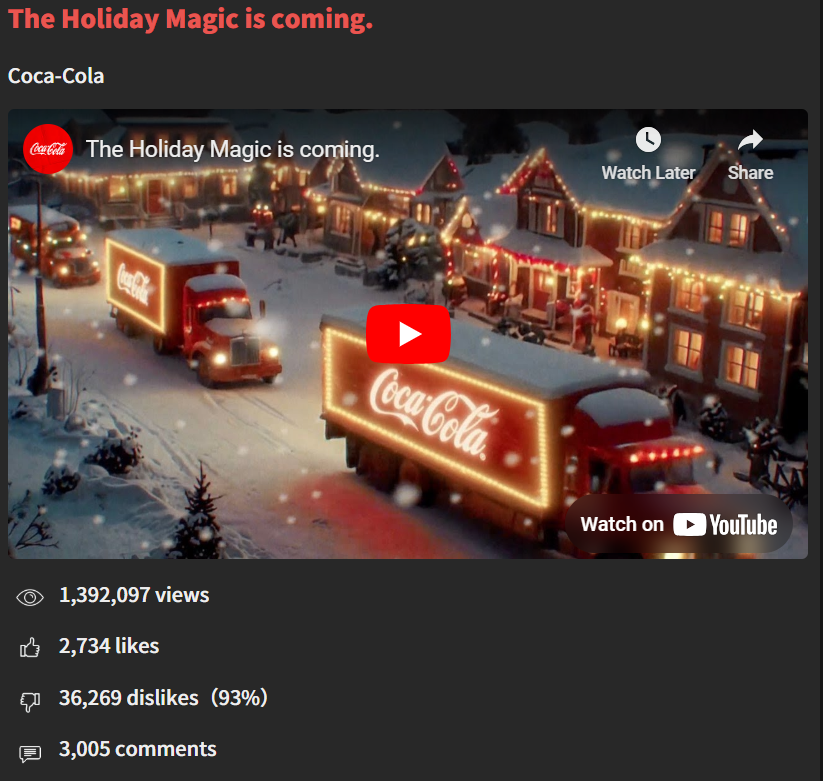
The discrepancy between reported data and visible reactions leaves much to unpack, but one thing is clear: Coca-Cola seems to have a mantra: stick to your guns, even if the crowd thinks you could have done better.
Addressing the chatter around their controversial AI Holiday ad, a company spokesperson confidently told The New York Times, “Coca-Cola will always remain dedicated to creating the highest level of work at the intersection of human creativity and technology.”
The ad was created by AI studios Secret Level, Silverside AI, and Wild Card using Luma, Runaway, and Leonardo.
A study tells a tale of overwhelming consumers who are skeptical of the usage of AI in experiences
While we are at Coca Cola AI holiday ad, Lippincott’s new study gives us a reality check for brands banking on AI to wow their customers.
Out of nearly 12,000 respondents surveyed, only 29 percent felt AI-powered experiences lived up to the hype. While 57% expect brands to use AI to enhance products, services, and experiences, the reception to these efforts seems lukewarm. Another 40 percent are skeptical about AI’s future role in improving their experiences with brands.
Here’s the kicker: the majority of respondents view brands leveraging AI as something other than particularly innovative. It’s clear that consumers want more than just the novelty of AI—they want tangible, meaningful improvements.
For brands, this study is a gentle nudge (or perhaps a shove) to rethink how AI is integrated. It’s not just about using AI but in ways that genuinely elevate the brand experience. Until then, skepticism reigns supreme.
Coca-Cola is one of the many brands that has been experimenting with AI for a few years. Sometimes, they tumble, and sometimes, they shine high.
Cut to the chase
Coca-Cola’s AI holiday ad has received backlash from everyone, including the audience, consumers, artists, and ad critics. What went wrong here that cast a shadow over the AI-powered festive spirit of the legacy brand? However, a few reports put a positive spin on the aftermath of the “Real Magic” ad launch, but a study revealed how consumers are skeptical of such decisions that involve AI.

